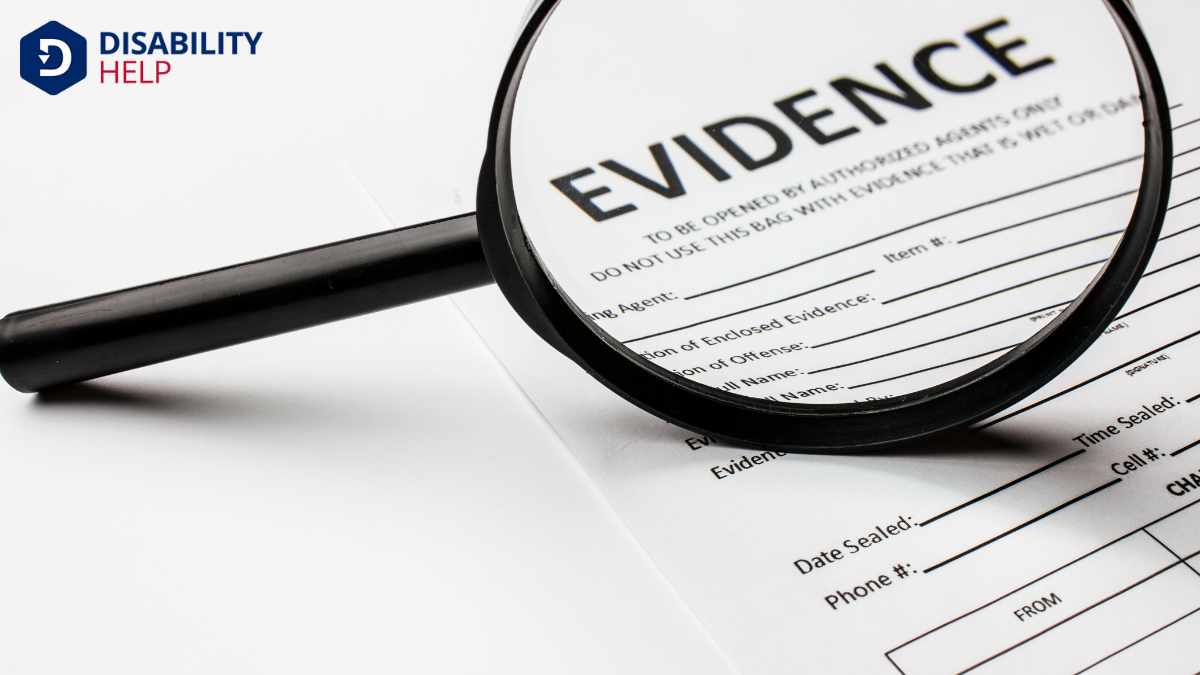When you're trying to figure out whether it's tougher to qualify for SSI or SSDI, it really depends on your situation. Both programs come with their own eligibility hurdles. SSI has strict income and resource limits, while SSDI demands a solid work history. Each path presents its own set of challenges, and the intricacies of the application process can be intimidating. Curious about what makes one more challenging than the other? Let's explore this further.
Key Takeaways
- SSDI requires a work history and sufficient work credits, making eligibility dependent on past employment contributions.
- SSI focuses on financial need, requiring proof of limited income and resources, but not a work history.
- Both programs demand comprehensive medical evidence to prove disability, which is often challenging to gather and organize.
- The application process for both SSI and SSDI is lengthy, with many initial claims being denied, leading to extensive appeals.
- Understanding the specific eligibility criteria and documentation requirements can make it easier to navigate and succeed in applying.
Understanding the Differences Between SSI and SSDI
Although SSI and SSDI both provide essential financial support to individuals with disabilities, they differ markedly in eligibility requirements and benefits.
SSI, or Supplemental Security Income, is a needs-based program designed to help those with limited income and resources. It doesn’t require prior work history, focusing instead on financial need.
In contrast, SSDI, or Social Security Disability InsuranceA form of insurance that provides income to individuals who are unable to work due to a disability., hinges on your work history. You must have paid into Social Security through taxes to qualify.
When considering benefits, SSI offers a fixed monthly payment, sometimes supplemented by state programs.
SSDI benefits are based on your past earnings, potentially resulting in higher payments.
Understanding these differences is vital when maneuvering your options. It helps you decide which program aligns better with your specific situation and financial needs.
Eligibility Criteria for SSI

To qualify for SSI, you need to meet specific income and resource limits, ensuring you don't exceed a certain financial threshold.
You'll also have to satisfy age or disability criteria, while being a U.S. citizen or meeting certain non-citizen requirements.
Understanding these eligibility standards is essential to determining your potential qualification for benefits.
Income and Resource Limits
Steering through the eligibility criteria for Supplemental Security Income (SSI) often hinges on understanding the income and resource limits set by the program.
To qualify for SSI, you must meet specific financial thresholds. Your monthly income, including wages, pensions, and other benefits, can't exceed a certain limit. Some of your income may not count, like part of your wages or SNAP benefits.
Resources, such as cash, real estate, or personal property, must also stay below a set value, typically $2,000 for individuals or $3,000 for couples. Certain resources, like your home or car, don’t count.
Always keep track of income and resources to guarantee you remain eligible for SSI benefits. Understanding these limits helps you navigate the process smoothly.
Age and Citizenship Requirements
Besides income and resource limits, eligibility for Supplemental Security Income (SSI) also depends on age and citizenship criteria. To qualify, you must meet specific requirements.
Initially, you should be aged 65 or older, though younger individuals can qualify if they're blind or disabled. Furthermore, your citizenship status plays a significant role. You need to be a U.S. citizen or a qualified non-citizen to receive benefits.
Understanding these prerequisites can help you determine your eligibility for SSI. Keep in mind:
- Age: 65+ or younger if blind or disabled.
- Citizenship: Must be a U.S. citizen or a qualified non-citizen.
- Residency: You must live in one of the 50 states, the District of Columbia, or the Northern Mariana Islands.
These guidelines guarantee that only those meeting specific conditions receive support.
Disability Qualification Standards
When it comes to qualifying for Supplemental Security Income (SSI) due to disability, understanding the specific criteria is vital.
First, you'll need to demonstrate that your condition considerably limits your ability to perform basic work activities. The Social Security Administration (SSA) maintains a list of impairments; if your condition is on this list, it can simplify the process.
However, if not, don't worry—you can still qualify by proving that your condition is equally severe. You'll also need to provide medical evidence, like doctors' reports and test results, to support your claim.
Additionally, your disability must be expected to last at least 12 months or result in death. Meeting these standards is critical to receiving SSI benefits, so make sure you’ve got all the necessary documentation.
Eligibility Criteria for SSDI
To qualify for Social Security Disability Insurance (SSDI)A U.S. government program that provides financial assistance to individuals who are unable to work d..., you'll need to meet specific eligibility criteria that focus on both your work history and health condition.
First, you must have accumulated enough work credits by paying into the Social Security system through your previous employment. The number of work credits you need depends on your age and when you became disabled.
Second, your medical condition must meet the Social Security Administration's (SSA) definition of disability, meaning it greatly limits your ability to perform basic work activities and is expected to last at least one year or result in death.
Key points include:
- Work Credits: Earned by working and contributing to Social Security.
- Medical Condition: Must meet SSA's disability criteria.
- Earnings Cap: You're unable to perform substantial gainful activity.
Challenges in the Application Process
When applying for SSI or SSDI, you’ll face varying documentation requirements that can be confusing.
Gathering detailed medical evidence is vital, yet often complex and time-consuming.
Additionally, application processing delays can test your patience and prolong the waiting period.
Documentation Requirements Vary
Maneuvering the documentation requirements for SSI and SSDI can be an intimidating task, as they vary considerably between the two programs.
For SSI, you’ll need to prove financial need, which includes submitting evidence of your income, resources, and living arrangements.
SSDI, on the other hand, requires proof of work history and sufficient Social Security credits.
It’s vital to gather the right paperwork before applying to avoid delays or denials.
Consider these essential steps:
- Review Eligibility Criteria: Understand the specific requirements for each program.
- Gather Necessary Documents: Collect income statements, tax returns, and employment records.
- Seek Professional Guidance: Reach out to a Social Security representative or a disability advocate for assistance.
Medical Evidence Complexity
Although gathering medical evidence can be one of the most challenging aspects of applying for SSI or SSDI, it's a vital part of the process. You need thorough documentation to support your claim. This includes medical records, doctors’ notes, and test results.
Getting all this together can be overwhelming, especially if you're dealing with multiple healthcare providers. It’s essential to guarantee your records clearly demonstrate how your condition affects your ability to work.
Sometimes, healthcare providers may not fully understand the requirements, leading to incomplete submissions. You might need to follow up persistently to receive all necessary documents.
Keep copies of everything and consider organizing them chronologically. By doing so, you'll make it easier for the decision-makers to assess your situation accurately.
Application Processing Delays
For many applicants, the most frustrating part of applying for SSI or SSDI is the inevitable processing delays. You’re keen to get the support you need, but the wait can feel endless.
These delays often stem from a backlog of applications, limited resources, or incomplete information.
To navigate these challenges, consider the following:
- Stay proactive: Regularly check the status of your application online or by contacting the Social Security Administration (SSA).
- Submit complete information: Verify that all required documents and forms are accurate and complete from the start.
- Seek assistance: Consider consulting a disability advocate or attorney who can help guide you through the process efficiently.
Medical Evidence Requirements

When dealing with SSI and SSDI applications, how essential is your medical evidence? It’s critical. Your medical records serve as the foundation for proving your disability claim.
Without detailed and up-to-date medical documentation, it’s challenging to convince the Social Security Administration (SSA) of your condition's severity. You must provide detailed records from doctors, hospitals, and other healthcare providers that clearly outline your diagnosis, treatments, and how your disability limits daily activities.
To strengthen your application, verify that all documents are organized and current. Include test results, treatment plans, and any physician statements about your inability to work.
The Role of Work History in SSDI
Your work history plays an essential role in determining your eligibility for SSDI benefits. To qualify, you need to have accumulated enough work credits through your employment.
Work credits are earned by paying Social Security taxes, and the number of credits required varies based on your age and when you became disabled. Typically, you need 40 credits, with at least 20 earned in the last 10 years before your disability.
Here's how work history impacts your SSDI eligibility:
- Work Credits: You earn up to four credits per year, depending on your income.
- Recent Work Test: Younger workers may need fewer credits, but must meet specific recent work requirements.
- Duration of Work Test: The total number of work years also contributes to eligibility.
Understanding these factors helps you assess your SSDI eligibility.
Financial Limitations and SSI
Although both SSI and SSDI aim to provide assistance to those with disabilities, financial limitations play an essential role in qualifying for SSI.
To receive SSI, you must meet strict income and asset limits. This program is needs-based, focusing on individuals with limited resources. Your countable income, which includes wages, pensions, and some government benefits, should be below the federal benefit rate.
Additionally, your assets, such as cash, bank accounts, and properties (excluding your home), can't exceed $2,000 for individuals or $3,000 for couples.
If you own a car, one vehicle is usually excluded from this limit. Understanding these financial constraints is important when applying for SSI, as exceeding them could disqualify you from receiving much-needed support.
Approval Timelines and Appeals Process

Maneuvering the approval timelines and appeals process for SSI and SSDI can be intimidating. Understanding the steps involved helps ease the stress.
Initially, applications for both programs can take several months for a decision. Unfortunately, many are denied at the first stage. If you face a denial, the appeals process is your next step, and it can be lengthy. It’s important to stay organized and persistent.
- Reconsideration: You can request a review of your initial application if denied. This step can take months.
- Hearing: If reconsideration fails, you can request a hearing before an administrative law judge. This may take a year or more.
- Appeals Council: If needed, you can appeal to the council, but this extends the timeline further.
Understanding these processes is essential for success.
Conclusion
When deciding if it’s harder to get SSI or SSDI, it really depends on your personal situation. With SSI, you’ll face strict income and resource limits, making it tough if you’re financially constrained. On the other hand, SSDI requires a solid work history, which can be challenging if you lack work credits. Both programs demand extensive medical documentation, and the application process can be lengthy. Ultimately, understanding eligibility and preparing thoroughly is key to success.






